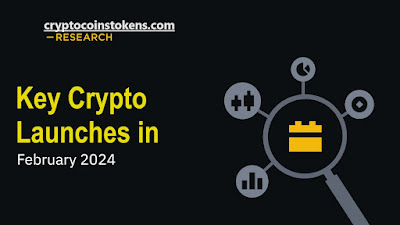Comparison of Crypto Coins and Tokens: Technologies Used, Types, Advantages and Disadvantages
The world of digital currencies has witnessed tremendous growth in recent years, with many new cryptocurrencies and tokens entering the mrket. Although the terms 'coin' and 'token' are often used interchangeably, they are not the same. In this article, we will discuss the differences between coins and tokens, and their respective advantages and disadvantages.
This table provides a comparison between crypto coins and tokens, including the technologies used, types of coins and tokens, advantages, and disadvantages of each. Whether you're an investor or a crypto enthusiast, this table will help you understand the differences between these two types of digital assets.
| Question | Coins | Tokens |
|---|---|---|
| What are they? | Coins are digital currencies that operate independently of any platform. | Tokens are digital assets that are created using an existing blockchain network. |
| Why were they created? | Coins were created as an alternative to traditional currencies, providing a decentralized and secure way to transfer value without the need for intermediaries. | Tokens were created to represent assets or utility within an existing blockchain network, allowing for the creation of custom digital assets. |
| When were they created? | The first cryptocurrency, Bitcoin, was created in 2009, and many other coins have since entered the market. | Tokens have been created since the early days of Ethereum, which introduced the concept of smart contracts that allowed for the creation of custom digital assets. |
| What is their underlying technology? | Coins have their own blockchain, which is used to maintain a ledger of all transactions on the network. Common examples include Proof-of-Work (PoW) and Proof-of-Stake (PoS). | Tokens are created on top of an existing blockchain and operate within that network. Common examples of blockchain networks used to create tokens include Ethereum and Binance Smart Chain. |
| Who can create them? | Coins can be created by anyone with the technical know-how to create a new blockchain and cryptocurrency. | Tokens can be created by anyone with the technical know-how to create a smart contract on an existing blockchain network. |
| Are they decentralized? | Coins are completely decentralized, which means that no central authority controls the network. This makes them more resistant to censorship and fraud. | Tokens are often less decentralized than coins, as they are created by centralized entities and operate within an existing blockchain network. This can make them more susceptible to censorship and fraud. |
| What are their use cases? | Coins can only be used within their respective blockchain network, which limits their use case. Common use cases include currency, payment systems, and store of value. | Tokens can be customized and modified to suit different use cases, making them more versatile than coins. Common use cases include utility tokens, security tokens, and non-fungible tokens (NFTs). |
| Are they liquid? | Coins are highly liquid, which means that they can be easily bought and sold on cryptocurrency exchanges. This makes them a popular choice for traders and investors. | Tokens are often less liquid than coins, which means that they are not as easy to buy and sell on cryptocurrency exchanges. This can make them less attractive to traders and investors. |
| What assets do they represent? | Coins do not represent any specific asset, as they are used solely as a form of currency within their respective network. | Tokens can represent a wide range of assets, including digital assets, physical assets, and even real-world assets. This makes them more versatile than coins. |
| Can they be modified? | Coins cannot be customized or modified, as they operate on a fixed protocol. This limits their functionality and flexibility. | Tokens can be programmed to perform a wide range of functions, including voting, fundraising, and asset tracking, making them more flexible than coins. |
| What are the advantages? | Advantages of coins include decentralized control, security, and a fixed supply, which can make them a good store of value. Advantages of tokens include versatility, flexibility, the ability to represent a wide range of assets and functions, and lower transaction costs compared to traditional financial systems. | Tokens are programmable, meaning they can be used to automate and self-execute transactions, making them a versatile tool for creating complex financial instruments. Additionally, transactions using tokens are typically lower cost than traditional payment methods like credit cards or wire transfers. Tokens can also be used to access funding, as they can be sold to investors in exchange for traditional currencies or other cryptocurrencies. |
| What are the disadvantages? | Disadvantages of coins include limited use cases, lower versatility, and higher volatility. Disadvantages of tokens include potential regulatory uncertainty, centralization, and a lack of liquidity for some tokens. | Tokens are less secure than coins, as they rely on the security of the underlying blockchain on which they are built. Additionally, the value of tokens can be highly volatile, making them a risky investment. Finally, regulatory challenges around tokens, particularly those that are securities or asset-backed, can make them difficult to use or trade. |




Comments
Post a Comment